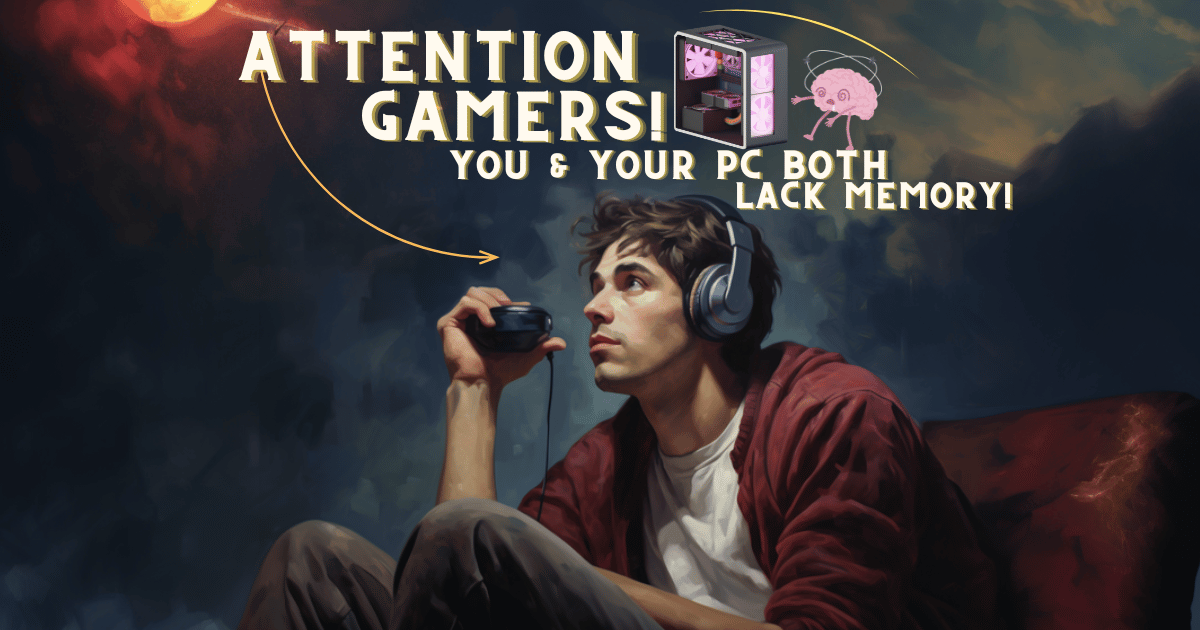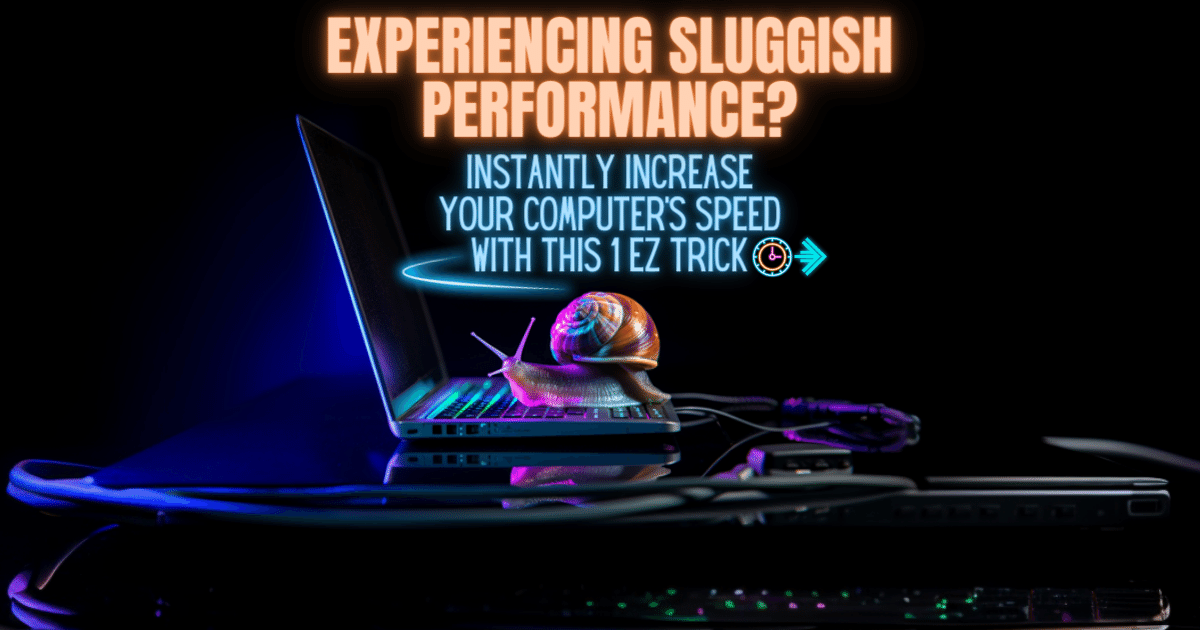The SIMPLE Gamer's Guide On What to Know Before Buying a Gaming PC! 📖🎮

When it comes to buying a gaming PC, conducting thorough research is crucial to ensure you make an informed decision. With numerous options available in the market, understanding the key factors to consider will help you find the perfect gaming PC that meets your needs and preferences.
By carefully evaluating aspects such as your budget, gaming requirements, and specific components, you can choose a gaming PC that provides an optimal gaming experience. In this guide, we will discuss the essential factors to consider before purchasing a gaming PC to help you make the right choice.
⇨ Budget Considerations
When building a gaming PC, it's crucial to establish a realistic budget that aligns with your personal financial situation. Consider your income, expenses, and savings goals to determine how much you can comfortably allocate toward your gaming setup. It's important to strike a balance between investing in a high-quality gaming experience and maintaining financial stability.
To determine your budget, start by assessing your disposable income and identifying how much you can comfortably set aside for your gaming PC. Take into account any existing financial commitments, such as bills, rent or mortgage payments, and other essential expenses. It's essential to prioritize your financial well-being and avoid overspending on your gaming setup.
Once you have established your budget, it's time to balance performance and cost by prioritizing components that have the most significant impact on your gaming experience. While it's tempting to go for the latest and most expensive components, it's important to consider your budget limitations and focus on the components that will provide the most noticeable improvements.
Start by identifying the key components that directly affect gaming performance, such as the graphics card, processor (CPU), and RAM. These components play a crucial role in delivering smooth gameplay and high frame rates. Allocate a significant portion of your budget towards these components to ensure optimal gaming performance.
Other components, such as storage drives, power supply units (PSUs), and cooling systems, should also be considered, but their impact on gaming performance may be less significant. Strike a balance between performance and cost by opting for reliable and reasonably priced options in these areas.
When building a gaming PC, it's important to view it as a long-term investment. Technology evolves rapidly, and new games often require more powerful hardware. Therefore, it's crucial to consider future upgrade possibilities when selecting components.
Invest in a motherboard that supports future upgrades and has sufficient expansion slots for additional components. Opt for a power supply unit (PSU) with a higher wattage than your current requirements to accommodate future upgrades. Additionally, choose a case that allows for easy component installation and upgrades.
Consider the upgradability of your chosen components, such as the graphics card and RAM. Ensure that they can be easily replaced or upgraded in the future without requiring significant changes to other parts of your system.
By considering future upgrade possibilities, you can extend the lifespan of your gaming PC and avoid the need for a complete overhaul in the near future. This approach allows you to gradually upgrade your system as needed, keeping up with the latest gaming requirements without breaking the bank.
⇨ Gaming Requirements
When it comes to gaming, it's essential to identify the types of games you plan to play and understand their system requirements. Different games have varying demands on your computer's hardware and software capabilities. Here are some common types of games and their corresponding system requirements:
- Casual Games: Casual games, such as puzzle games, card games, and simple platformers, usually have low system requirements. These games can typically run on most modern computers without any issues.
- eSports and Competitive Games: eSports titles like League of Legends, Dota 2, and Counter-Strike: Global Offensive require a moderately powerful system. These games demand a stable internet connection, a decent processor, a dedicated graphics card, and sufficient RAM to ensure smooth gameplay.
- AAA Games: High-end, graphically-intensive games like Assassin's Creed Valhalla, Cyberpunk 2077, and Red Dead Redemption 2 have more demanding system requirements. These games often require a powerful processor, a high-end graphics card, ample RAM, and a fast storage solution like an SSD to deliver optimal performance.
- Virtual Reality (VR) Games: VR games, such as Half-Life: Alyx and Beat Saber, require a robust system to provide an immersive experience. These games typically demand a high-performance CPU, a top-tier graphics card, a significant amount of RAM, and specific VR hardware like a headset and motion controllers.
Recommended System Requirements for Optimal Performance
To ensure optimal performance while playing games, it's crucial to meet or exceed the recommended system requirements. These requirements are usually provided by the game developers and can be found on their official websites or on digital distribution platforms like Steam. Here are some general recommendations for optimal gaming performance:
- Processor (CPU): Look for a modern, multi-core processor with a high clock speed. Intel Core i5 or AMD Ryzen 5 processors are often sufficient for most games, while more demanding titles may require an Intel Core i7 or AMD Ryzen 7.
- Graphics Card (GPU): Invest in a dedicated graphics card from reputable manufacturers like NVIDIA or AMD. The specific model will depend on the games you plan to play. Mid-range cards like the NVIDIA GeForce GTX 1660 or AMD Radeon RX 5600 XT offer a good balance between performance and cost, while high-end cards like the NVIDIA GeForce RTX 3080 or AMD Radeon RX 6900 XT provide top-tier performance.
- RAM: Aim for at least 8 GB of RAM, although 16 GB is becoming the standard for gaming. Some AAA games may recommend or require 32 GB for optimal performance.
- Storage: Consider using a solid-state drive (SSD) for faster loading times and smoother gameplay. A combination of an SSD for the operating system and frequently played games, along with a larger traditional hard drive for storage, is a common setup.
Future Game Releases and Potential Impact on System Requirements
As technology advances, new game releases may push the boundaries of system requirements even further. Developers continually strive to deliver more immersive and visually stunning experiences, which often necessitate more powerful hardware. When considering future game releases, keep the following points in mind:
- Stay updated: Follow gaming news and announcements to stay informed about upcoming game releases and their anticipated system requirements. Game developers often provide recommended specifications well in advance.
- Longevity: Consider investing in hardware that exceeds the currently recommended system requirements. This will help future-proof your gaming setup and ensure it can handle upcoming games for a longer period.
- Upgrade options: Choose a system with upgradeable components, such as a desktop PC, to allow for easy hardware upgrades in the future. This flexibility will enable you to adapt to changing system requirements without replacing the entire system.
By understanding the types of games you want to play, meeting or exceeding recommended system requirements, and considering future game releases, you can ensure an optimal gaming experience and stay ahead of the curve in the ever-evolving world of gaming.
⇨ Processor (CPU)
The Central Processing Unit (CPU) plays a crucial role in gaming, as it is responsible for executing instructions and performing calculations necessary for running games. The CPU's performance directly affects the overall gaming experience, including frame rates, loading times, and the ability to handle complex game mechanics.
In gaming, the CPU handles tasks such as physics simulations, artificial intelligence, and game logic. It interprets instructions from the game software and performs calculations to determine the position of objects, calculate collisions, and execute various game mechanics.
A powerful CPU can handle these tasks quickly and efficiently, resulting in smoother gameplay and improved responsiveness. The impact of the CPU on gaming performance can be seen in games that require high levels of processing power, such as open-world games with large environments and complex interactions. In these cases, a faster CPU with multiple cores can handle the workload more effectively, allowing for better graphics, more detailed environments, and enhanced physics simulations.
Researching Different CPU Options and Comparing Specifications and Performance
When considering different CPU options for gaming, it is essential to look at their specifications and performance characteristics. Here are some key factors to consider:
- Clock Speed: The clock speed, measured in gigahertz (GHz), determines how many instructions a CPU can execute per second. Higher clock speeds generally result in better performance, but it's important to consider other factors as well.
- Cores and Threads: CPUs with multiple cores and threads can handle more tasks simultaneously, improving multitasking capabilities and overall performance. Games that utilize multiple threads can benefit from CPUs with higher core counts.
- Cache: The CPU cache is a small amount of high-speed memory that stores frequently accessed data. A larger cache can improve performance by reducing the time it takes to access data.
- Architecture: Different CPU architectures, such as Intel's x86 and AMD's Zen, can have varying performance characteristics. It's worth researching the specific architecture and its impact on gaming performance.
- Power Consumption: Consider the power requirements of the CPU, as higher power consumption can lead to increased heat generation and potentially require more robust cooling solutions.
When comparing CPU options, it's important to consider both the specifications and real-world performance benchmarks. Websites and publications dedicated to hardware reviews often provide detailed comparisons and benchmarks for different CPUs, allowing you to make an informed decision.
Performance benchmarks provide valuable insights into how different CPUs perform in real-world scenarios. These benchmarks measure factors such as gaming performance, multitasking capabilities, and power efficiency. When evaluating performance benchmarks, consider the following:
- Gaming Performance: Look for benchmarks that specifically test gaming performance, including frame rates and overall smoothness. Pay attention to how different CPUs perform in the games you intend to play.
- Multitasking and Productivity: If you plan to use your computer for tasks other than gaming, consider benchmarks that evaluate multitasking capabilities and performance in productivity applications.
- Power Efficiency: Assess the power consumption and efficiency of different CPUs, as this can impact both performance and operating costs.
- Price-to-Performance Ratio: Consider the price of the CPU in relation to its performance. Sometimes, a slightly lower-performing CPU may offer better value for money.
⇨ Graphics Card (GPU)
When it comes to gaming, a powerful Graphics Processing Unit (GPU) plays a crucial role in delivering smooth and immersive experiences. The GPU is responsible for rendering and displaying graphics, textures, and visual effects in games. A powerful GPU ensures that games run smoothly, with high frame rates and detailed graphics, allowing you to fully immerse yourself in the gaming world.
A powerful GPU not only enhances the visual quality of games but also enables advanced features like real-time ray tracing and virtual reality (VR) support. These features can greatly enhance the realism and immersion of games, making them more visually stunning and engaging.
When researching GPU options, it's important to consider factors such as the GPU's specifications and performance. Some popular GPU manufacturers include NVIDIA and AMD, both of which offer a range of options to suit different budgets and gaming requirements.
When comparing GPU specifications, key factors to consider include the number of CUDA cores (for NVIDIA GPUs) or stream processors (for AMD GPUs), clock speeds, memory bandwidth, and memory capacity. Higher numbers in these specifications generally indicate better performance.
It's also important to consider the specific requirements of the games you intend to play. Some games may require more powerful GPUs to run smoothly at higher settings, while others may be less demanding. Online resources and reviews can provide valuable insights into the performance of different GPUs in specific games.
If you're interested in virtual reality gaming or want to experience cutting-edge graphics, it's worth considering GPUs that offer VR and ray tracing capabilities. VR support allows you to enjoy immersive gaming experiences with compatible headsets, while ray tracing technology enhances the realism of lighting and reflections in games.
NVIDIA's RTX series GPUs, for example, are known for their ray tracing capabilities, which can significantly improve the visual quality of games that support this feature. AMD's GPUs also offer ray tracing support with their latest RDNA 2 architecture.
Before making a decision, it's important to check if the games you plan to play support these features and if the GPU you're considering meets the recommended specifications for optimal performance.
⇨ Memory (RAM)
RAM, or Random Access Memory, is an essential component that directly impacts gaming performance. It acts as a temporary storage space for data that the CPU needs to access quickly. In gaming, RAM plays a crucial role in reducing loading times, improving overall system responsiveness, and enabling smooth multitasking.
When you launch a game, it loads various assets and data into RAM to ensure quick access during gameplay. Insufficient RAM can lead to longer loading times and frequent stutters as the system struggles to retrieve data from slower storage devices like hard drives.
Moreover, RAM also affects multitasking capabilities. If you like to have multiple applications running simultaneously while gaming, having sufficient RAM ensures smooth transitions between tasks without impacting gaming performance.
The optimal amount of RAM for gaming depends on your specific requirements and budget. Most modern games recommend a minimum of 8GB of RAM, but for a smoother experience, it's generally recommended to have 16GB or more.
Having more RAM allows the system to store a larger amount of game data, reducing the need for frequent data retrieval from slower storage devices. This can result in faster loading times and improved overall performance.
However, it's important to consider your budget and prioritize other components as well. If you're on a tight budget, starting with 8GB of RAM and upgrading later is a viable option. Keep in mind that some games, especially those with high-resolution textures or open-world environments, may benefit from having more RAM.
In addition to the amount of RAM, the speed and latency of the RAM modules can also impact gaming performance. RAM speed is measured in megahertz (MHz) and refers to the rate at which data can be transferred to and from the RAM. Higher RAM speeds can result in faster data access and improved overall system performance.
Latency, measured in nanoseconds (ns), refers to the delay between the CPU requesting data from RAM and the RAM delivering it. Lower latency values indicate faster response times, which can lead to smoother gameplay and reduced input lag.
⇨ Storage Options
When it comes to storage options for gaming, two popular choices are Hard Disk Drives (HDDs) and Solid State Drives (SSDs). Understanding the differences between these two options is crucial in determining their impact on gaming performance.
HDDs: HDDs are traditional mechanical drives that use spinning disks to store data. They offer larger storage capacities at a lower cost compared to SSDs. However, their mechanical nature means slower read and write speeds, resulting in longer loading times for games. This can lead to delays in accessing game data, affecting overall gaming performance.
SSDs: On the other hand, SSDs are a newer technology that uses flash memory to store data. They have no moving parts, which allows for significantly faster read and write speeds compared to HDDs. This translates to faster loading times, reduced stuttering, and smoother gameplay. SSDs are particularly beneficial for open-world games with large maps, as they can quickly load and stream data, minimizing lag and pop-in issues.
In terms of gaming performance, SSDs have a clear advantage over HDDs. They provide faster load times, quicker asset streaming, and improved overall responsiveness, resulting in a more enjoyable gaming experience.
Determining the appropriate storage capacity for your gaming needs depends on the size of your game library and other data you plan to store.
Consider the average size of the games you play or intend to play. Some modern games can take up tens or even hundreds of gigabytes of storage space. If you have a large game library or frequently play new releases, you may require a higher storage capacity to accommodate these games.
Additionally, consider other data you might store on your system, such as videos, music, or work files. If you plan to use your gaming PC for multimedia purposes or work-related tasks, you should factor in the storage requirements for these files as well.
It's important to strike a balance between having enough storage space and staying within your budget. If you have a limited budget, you can opt for a smaller SSD or HDD and supplement it with external storage options like portable hard drives or network-attached storage (NAS) devices.
While evaluating your storage needs, it's also worth considering the benefits of additional storage for future expansion. As games continue to evolve, their file sizes are likely to increase. By investing in additional storage capacity now, you can future-proof your system and avoid the need for frequent upgrades.
Having extra storage space allows you to install new games without worrying about running out of room. It also provides flexibility for storing other types of media or files. Furthermore, if you plan to record gameplay footage or stream your gaming sessions, additional storage will be essential for storing those recordings.
By considering the benefits of additional storage for future expansion, you can save yourself the hassle of constantly managing limited storage space and ensure a smooth gaming experience.
⇨ Cooling and Overclocking
Proper cooling is crucial for any gaming PC to prevent overheating and maintain optimal performance. When components such as the CPU and GPU generate heat during intense gaming sessions, it's essential to dissipate that heat effectively to avoid thermal throttling and potential damage to the hardware.
Overheating can lead to decreased performance, system instability, and even permanent damage to the components. To prevent this, it's important to have a well-designed cooling system in place.
There are various cooling solutions available to ensure efficient heat dissipation in a gaming PC. These include air cooling and liquid cooling.
Air cooling involves using fans and heatsinks to draw heat away from the components and expel it from the case. This is the most common and cost-effective cooling solution. It's important to have a well-ventilated case with strategically placed fans to ensure proper airflow and heat removal.
Liquid cooling, on the other hand, uses a closed-loop system or custom water cooling setup to transfer heat away from the components. Liquid cooling can be more effective at dissipating heat, especially for overclocked systems or high-end components. However, it can be more expensive and requires additional maintenance.
When considering cooling solutions, it's important to research and choose options that are compatible with your specific hardware and case. Additionally, optimizing case airflow by managing cable routing, using dust filters, and ensuring proper fan placement can significantly improve cooling efficiency.
Overclocking refers to running computer components at higher speeds than their default settings to achieve increased performance. While overclocking can provide a noticeable boost in gaming performance, it's important to understand the risks and benefits associated with it.
The main benefit of overclocking is the potential for higher frame rates and smoother gameplay. By increasing the clock speeds of the CPU and GPU, you can extract more performance from these components. However, this also leads to increased power consumption and heat generation.
Overclocking increases the stress on the components, which can result in higher temperatures and reduced lifespan if not properly managed. It's crucial to have adequate cooling in place to dissipate the additional heat generated by overclocking.
Additionally, overclocking may void warranties provided by manufacturers, so it's important to weigh the potential performance gains against the risks involved.
⇨ Peripherals and Accessories
When setting up a gaming PC, there are several necessary peripherals that you should consider. These include a monitor, keyboard, and mouse.
A high-quality gaming monitor is essential for an immersive gaming experience. Look for a monitor with a fast refresh rate (at least 144Hz) and low response time to minimize motion blur and input lag. Additionally, consider the resolution and panel type (e.g., IPS, TN, or VA) based on your preferences and budget.
A gaming keyboard with features like mechanical switches, customizable backlighting, and programmable macros can enhance your gaming performance and comfort. Choose a keyboard that suits your typing style and gaming preferences.
Similarly, a gaming mouse with adjustable DPI, programmable buttons, and ergonomic design can provide precise control and customization options. Consider the grip style and sensitivity settings that suit your gaming needs.
In addition to the necessary peripherals, there are gaming-specific peripherals that can further enhance your gaming experience.
Gaming headsets with surround sound capabilities and noise-canceling microphones can provide immersive audio and clear communication during multiplayer games. Look for headsets that offer comfort, audio customization options, and good build quality.
Controllers are another popular accessory for gaming, especially for genres like racing or platformers. Consider whether you prefer a console-style controller or a specialized gaming controller designed for PC gaming.
Other gaming-specific peripherals to consider include gaming chairs for comfort during long gaming sessions, gaming-specific mouse pads for precise mouse movements, and streaming equipment if you plan to broadcast your gameplay.
Apart from the necessary peripherals and gaming-specific accessories, there are additional accessories that can add convenience to your gaming setup.
For example, cable management solutions like cable sleeves or cable clips can help keep your gaming area tidy and prevent cable clutter. A desk or monitor mount can provide ergonomic benefits and save space.
Furthermore, consider investing in a power surge protector to safeguard your gaming PC and peripherals from power surges or electrical damage.
⇨ Upgradability and Future-Proofing
When considering a gaming PC, it's important to evaluate its potential for future upgrades and compatibility with new technologies. Technology is constantly evolving, and you'll want a system that can keep up with the latest advancements. Look for a PC that offers upgrade options for components such as the processor, graphics card, and storage.
Research the motherboard's compatibility with newer processors and graphics cards. Ensure that it supports the latest standards, such as PCIe 4.0, which can provide faster data transfer speeds. Additionally, check if the power supply has enough wattage to support future upgrades.
To future-proof your gaming PC, it's essential to research components that allow for easy upgrades and expansion. Look for systems that have ample space for additional storage drives, extra RAM slots, and available PCIe slots for future graphics card upgrades.
Consider the ease of upgrading components like the CPU and GPU. Some systems may have proprietary designs that make it difficult to replace certain parts. Opting for a more modular design can simplify the upgrade process and save you time and effort in the future.
When investing in a gaming PC, it's crucial to consider its lifespan and its ability to meet future gaming demands. Gaming requirements are constantly evolving, and you'll want a system that can handle upcoming games without becoming obsolete too quickly.
Research the recommended system requirements for the latest games and compare them to the specifications of the PC you're considering. Aim for a system that exceeds the minimum requirements to ensure a smooth gaming experience for years to come.
⇨Brand and Warranty
When purchasing a gaming PC, it's important to research reputable brands and read customer reviews to assess their reliability and quality. Look for brands that have a proven track record in the gaming industry and positive feedback from customers.
Check online forums, review websites, and social media platforms to gather insights from other users who have purchased gaming PCs from the brands you're considering. Pay attention to their experiences with customer support, build quality, and overall satisfaction.
Understanding the warranty terms and conditions is crucial to ensure proper coverage for your gaming PC. Read the warranty documentation carefully to know what is covered and for how long. Look for warranties that cover both parts and labor, as this can save you from unexpected repair costs.
Pay attention to any conditions that may void the warranty, such as opening the case or installing third-party components. Additionally, check if the warranty is provided by the manufacturer or a third-party service provider, as this can affect the ease of claiming warranty services.
Consider the after-sales support and customer service provided by the brand to ensure a hassle-free experience. Look for brands that offer responsive customer support channels, such as phone, email, or live chat, to address any issues or concerns you may have.
Check if the brand has service centers or authorized repair partners in your area. Having local support can expedite the repair process if any hardware issues arise. Additionally, read customer reviews to gauge the brand's reputation for providing prompt and satisfactory customer service.
Conclusion
Before buying a gaming PC, it's important to consider several key points. Evaluate the potential for future upgrades and compatibility with new technologies. Research components that allow for easy upgrades and expansion. Consider the lifespan of the PC and its ability to meet future gaming demands.
Research reputable brands and read customer reviews to assess reliability and quality. Understand warranty terms and conditions to ensure proper coverage. Consider after-sales support and customer service for a hassle-free experience.
It's crucial to make an informed decision based on your needs and budget when purchasing a gaming PC. Consider the type of games you'll be playing, the desired graphics settings and the level of future-proofing you require. Set a budget that aligns with your expectations and prioritize the components that matter most to you.
By considering these factors, you can find a gaming PC that offers the best value for your investment and provides an enjoyable gaming experience.
Lastly, emphasize the importance of enjoying the gaming experience with a well-researched and suitable gaming PC. A carefully chosen system can provide smooth gameplay, stunning visuals, and the ability to play the latest games without any issues.
Investing time in research and considering the factors mentioned earlier can help you find a gaming PC that meets your needs, offers future-proofing, and provides a satisfying gaming experience for years to come.
More Computer Guides ⬇💻⬇









